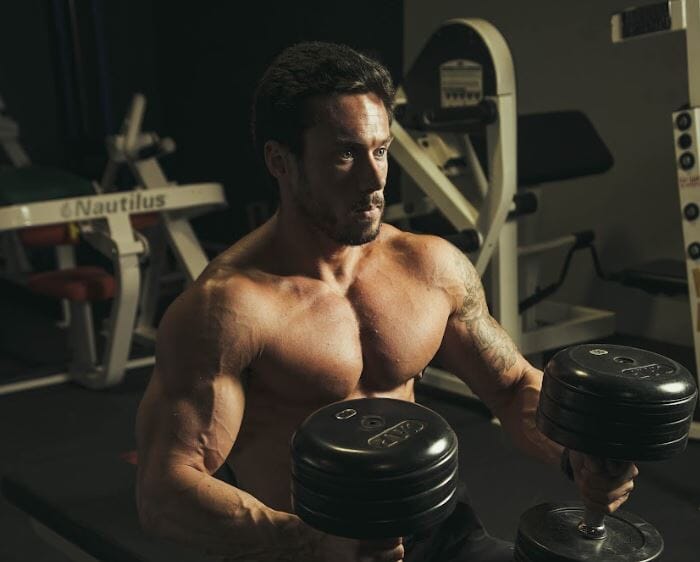Does Sweating Help You Lose Weight?
We all sweat. That's just a fact of life. Some people sweat more than others while some barely sweat at all. Usually, it happens as a result of exercise, weather, nerves, illness, or even from eating spicy foods. We don't sweat without reason, it serves a certain physiological purpose, meaning our bodies do it to function. In this post, we're going to focus on the kind of sweat that comes from physical exertion and one of the most common questions about it, does sweating help lose weight? And what other things contribute to weight loss?
Why Do We Sweat?
The healthy internal temperature for a human is 98.6 degrees Fahrenheit, give or take a degree either way. Our hypothalamus, the part of the brain that controls some key bodily functions, is in charge of regulating it. All mammals can do it and It’s called thermoregulation [1]. Your body sweats as a cooling mechanism and shivers to warm itself up. If we didn’t sweat, we would overheat and eventually suffer from heat stroke, which can quickly become deadly. Regardless of external factors (exercise, weather, etc), a healthy human body is always trying to stay at that target temperature. Kind of like the thermostat in your house.
It's important to know that everyone sweats differently. These are some of the most common internal factors that determine how much you sweat during exercise:
- Age
- Body Size
- Fitness Level
- Overall Health
- Genetics
- Gender
When the hypothalamus determines it needs to act to maintain the core temperature, it sends signals to your glands, skin, muscles, and organs. Humans have millions of sweat glands all over our bodies, located in the deeper layer of our skin called the dermis [2]. The majority of them are located on the hands, feet, armpits, and forehead. When we start getting hot, those glands secrete a liquid that is almost entirely water mixed with a little bit of salt. It requires energy to evaporate the sweat off your skin and that's the excess heat. As the sweat evaporates, your body starts cooling down. This is called "heat of vaporization" in physics [3].
What are the Benefits of Sweating?
Besides cooling you down, sweating provides other benefits as well. Through sweating, your body rids itself of waste from metabolic processes, excessive micronutrients called electrolytes, and toxins. If you don't sweat (hypohidrosis) or sweat too much (hyperhidrosis) you can experience serious health concerns. If you don't sweat you can experience dry skin, heat exhaustion, heat stroke, and quite possibly death. But if you sweat way too much, there's a potential for systemic diseases and an increase in anxiety [4].
Studies have shown that properly induced sweating actually showed clinical effectiveness in cardiovascular, respiratory, and joint diseases. In addition to being beneficial for chronic pain, it seemed promising in the treatment and prevention of Alzheimer's and dementia.
Does Sweating Cause Weight Loss?
Although sweating provides a lot of benefits, is it capable of helping you lose weight? Well, it doesn't directly affect weight loss. Sweating itself doesn't burn fat, but it does result in the loss of water weight. In temperature conditions, the average person might lose .8 to 1.5 liters of sweat in an hour of exercise. That's equivalent to 27 to 51 ounces of water! But since you'll need to rehydrate to keep your body functioning properly, that water weight will quickly return. However, while sweating won't burn fat, there's a process referred to as thermogenesis that is known to boost the metabolism and help you fight that stubborn belly fat.
Let's Talk About Thermogenesis
Like we talked about earlier, when your body temperature drops, the hypothalamus sends a message for it to tighten and relax in rapid succession. We all know this as shivering. The scientific term for it is thermogenesis and it increases your metabolism by burning energy to create heat [5]. But this can quickly turn into hypothermia, an extremely dangerous condition where the body begins to shut down once it burns through its energy stores.
Yet there's another type of thermogenesis called nonshivering thermogenesis that isn't as risky. Nonshivering thermogenesis occurs outside of the skeletal muscles via the metabolism of brown fat. The safest way to induce this type of thermogenesis is through the absorption of certain foods and nutrients.
Fat-burning Boosters
In this day and age, there are so many weight loss gimmicks it's hard to know what works and what doesn't. The good news is that there are a number of quality natural dietary nutrients that offer weight loss benefits and other health advantages.
- L-carnitine - an organic chemical made in the brain. Not only does L-carnitine help turn fat into energy, but it's also important for many bodily functions.
- Lean GBB - otherwise known as gamma-butyrobetaine. It's a precursor to L-carnitine and our bodies will turn it into carnitine as needed.
- 6-paradol - is the active ingredient in the Grains of paradise plant, a member of the ginger family. In addition to fat-burning, it's also an extremely strong antioxidant.
- Capsicum - also referred to as red pepper, has a thermogenic effect due to a chemical compound in them called capsaicin.
- Green tea - offers a wide range of health benefits from being loaded with antioxidants to improving digestion to encouraging weight loss.
- Yohimbine - comes from the bark of African Yohimbe evergreen trees. In addition to thermogenesis, Yohimbine boosts athletic performance.
- Bitter Orange - is used in traditional Chinese medicine to treat gastrointestinal disorders, anxiety, and more recently, obesity.
- Mitoburn - is an amino acid that browns white adipose tissue, increasing energy output and regulating weight management without stimulants.
- Fucoxanthin - is extracted from brown seaweed that's shown promise in increasing uncoupling protein in white fat, resulting in fat burning.
It's important to note that these aren't going to work on their own. You need to put in the work to see the results. That's why they're called supplements and not workout replacements.
References:
- Physiology, temperature regulation - STATPEARLS - NCBI bookshelf. (n.d.). Retrieved April 6, 2023, from https://www.ncbi.nlm.nih.gov/books/NBK507838/
- Baker, L. B. (2019, July 17). Physiology of sweat gland function: The roles of sweating and sweat composition in human health. Temperature (Austin, Tex.). Retrieved April 5, 2023, from https://www.ncbi.nlm.nih.gov/pmc/articles/PMC6773238/#:~:text=Humans%20have%20~2%E2%80%934%20million,across%20the%20body%20surface%20area.
- How sweat works: Why we sweat when we're hot, as well as when we're not. How Sweat Works: Why We Sweat When We're Hot, As Well As When We're Not | Houston Methodist On Health. (n.d.). Retrieved April 5, 2023, from https://www.houstonmethodist.org/blog/articles/2020/aug/how-sweat-works-why-we-sweat-when-we-are-hot-as-well-as-when-we-are-not/#:~:text=That's%20because%20cooling%20your%20body,you%20start%20to%20cool%20down.
- Mahlouji, M., Alizadeh Vaghasloo, M., Dadmehr, M., Rezaeizadeh, H., Nazem, E., & Tajadini, H. (2020, December 25). Sweating as a preventive care and treatment strategy in traditional Persian medicine. Galen medical journal. Retrieved April 5, 2023, from https://www.ncbi.nlm.nih.gov/pmc/articles/PMC8343902/
- I;, T. P. B. D. G. J. (n.d.). Shivering onset, metabolic response, and convective heat transfer during cold air exposure. Journal of applied physiology (Bethesda, Md. : 1985). Retrieved April 5, 2023, from https://pubmed.ncbi.nlm.nih.gov/1864780/#:~:text=The%20onset%20and%20intensity%20of,rate%20and%20convective%20heat%20loss.

